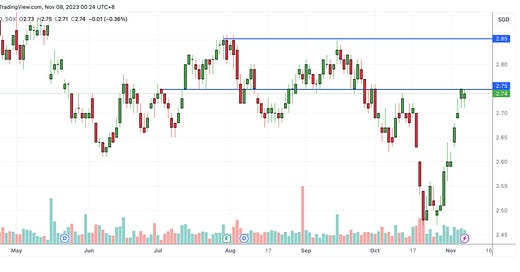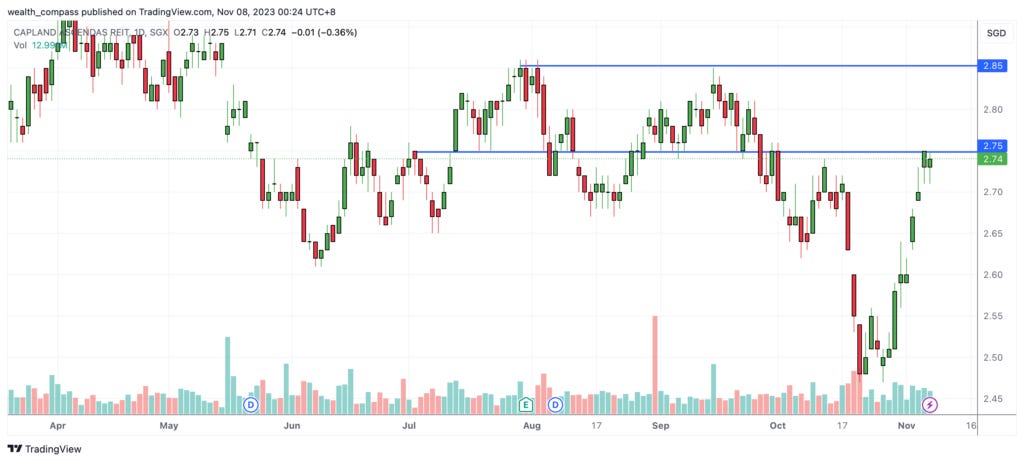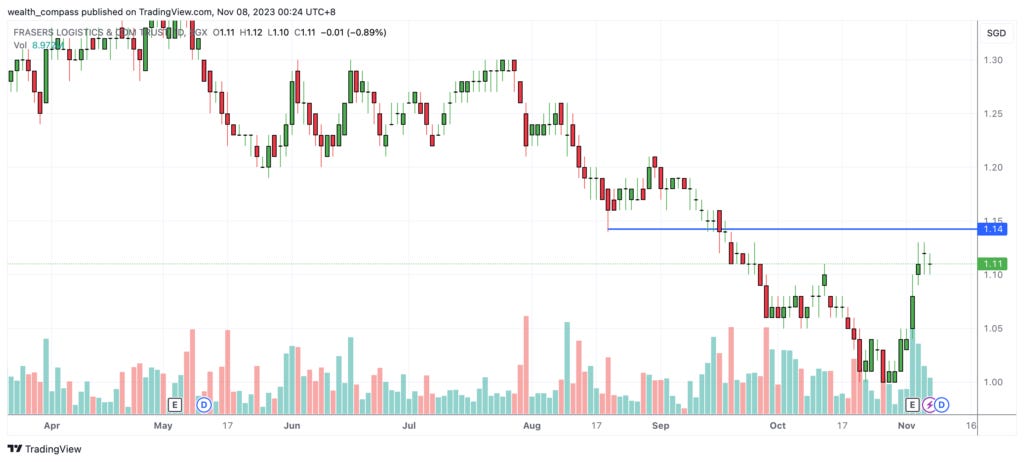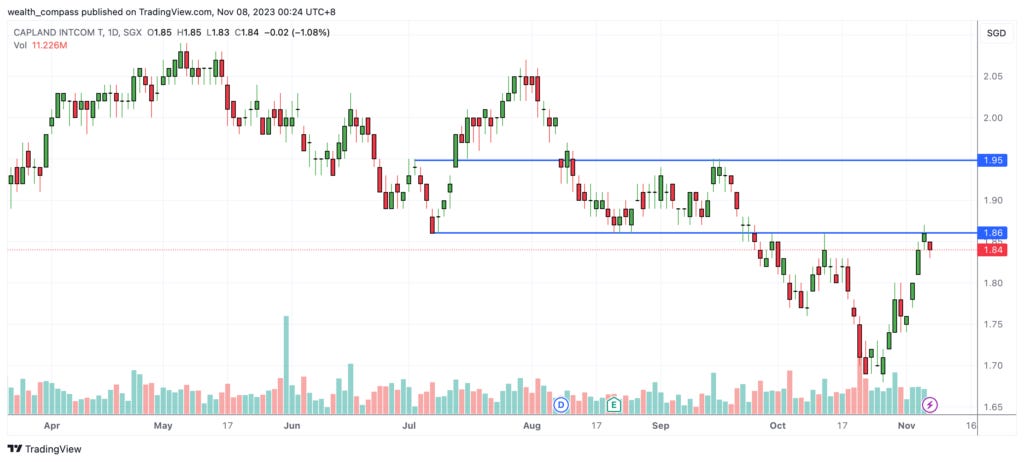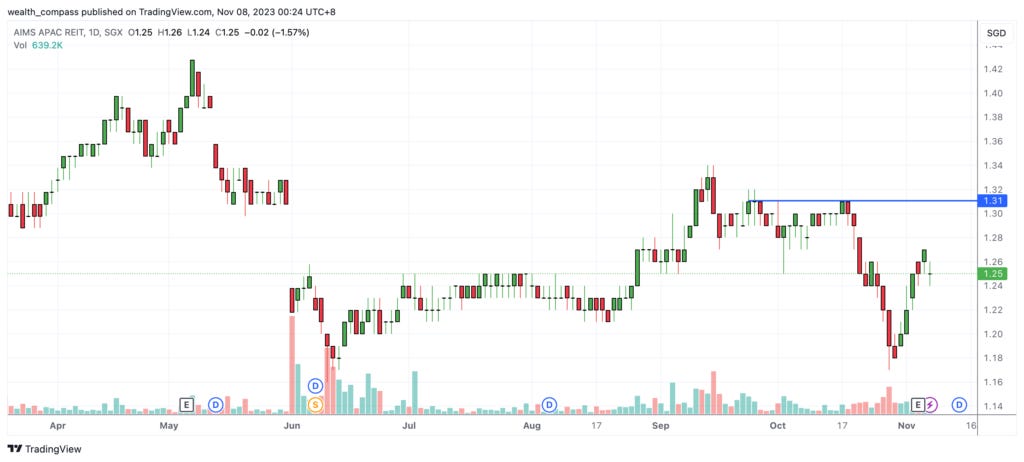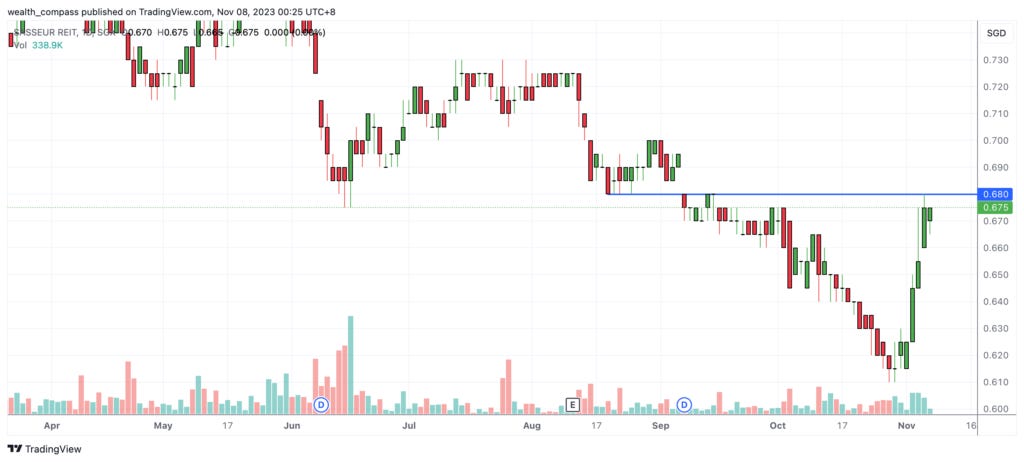5 REITs That Spiked by More Than 10% from Recent Lows
The recent turbulence in the stock market has left many investors concerned about the uncertainties and potential risks that lie ahead. Factors such as geopolitical tensions, economic fluctuations, and the possibility of rising interest rates have contributed to a bearish sentiment among investors.
However, amidst this challenging environment, there are a few Real Estate Investment Trusts (REITs) that have managed to defy the odds and deliver significant rebounds. In this article, we will explore five REITs that have recently rebounded by more than 10% from their recent lows, forming a V-shape rcovery, offering potential opportunities for investors seeking stability and growth. All the 5 REITs have solid fundamentals with consistent dividend payout over the years.
1. Capital Ascendas REIT:
Capital Ascendas REIT is a leading integrated business space and industrial REIT in Asia. With a diverse portfolio of properties across Singapore, Australia, and the United Kingdom, this REIT offers exposure to quality assets in key business hubs. Despite the bearish market sentiment, Capital Ascendas REIT has demonstrated resilience and rebounded strongly, thanks to its robust fundamentals, strategic acquisitions, and proactive asset management strategies.
The price is currently trading near its resistance level of $2.75. The next immediate resistance will be at $2.85.
2. Frasers Logistics and Commercial Trust:
Frasers Logistics and Commercial Trust is a REIT that focuses on industrial and commercial properties. With a portfolio spanning Australia, Germany, and the Netherlands, this REIT has shown impressive growth potential. Despite the market uncertainties, Frasers Logistics and Commercial Trust has rebounded significantly, supported by its strong tenant base, long lease tenures, and exposure to sectors that have demonstrated resilience, such as logistics and e-commerce.
The price is currently approaching its resistance level of $1.14.
3. CapitaLand Integrated Commercial Trust:
CapitaLand Integrated Commercial Trust is a leading commercial REIT in Singapore, owning and managing a diversified portfolio of prime commercial properties. Despite the challenging market conditions, this REIT has rebounded strongly, driven by its quality assets, strategic location, and stable income streams. CapitaLand Integrated Commercial Trust’s ability to attract reputable tenants and maintain high occupancy rates has contributed to its impressive recovery.
The price is currently trading near its resistance level of $1.86. The next immediate resistance will be at $1.95.
4. AIMS APAC REIT:
AIMS APAC REIT is a REIT that focuses on industrial properties located in Asia and Australia. With a portfolio consisting of well-located assets in key logistics hubs, AIMS APAC REIT has demonstrated resilience and delivered solid performance. Despite the broader market uncertainties, this REIT has rebounded by more than 10%, reflecting investor confidence in its strong fundamentals, attractive yield, and potential for capital appreciation.
The next immediate resistance will be at $1.31.
5. Sasseur REIT
Sasseur REIT is a unique REIT that specializes in outlet mall investments in China. Despite the challenges posed by the pandemic and the economic slowdown, Sasseur REIT has shown impressive recovery, driven by its innovative business model, strong sales performance, and focus on capturing the growth potential of the Chinese consumer market. The rebound of Sasseur REIT by more than 10% demonstrates its ability to adapt and thrive in changing market conditions.
The price is currently approaching its resistance level of $0.68.
Summary
While the stock market remains uncertain, the rebound of these five REITs by more than 10% from their recent lows offers a glimmer of hope for investors. Capital Ascendas REIT, Frasers Logistics and Commercial Trust, CapitaLand Integrated Commercial Trust, AIMS APAC REIT, and Sasseur REIT have demonstrated resilience, supported by their strong fundamentals, strategic positioning, and ability to navigate challenging market conditions. As always, investors should conduct their own research and exercise due diligence before making any investment decisions.

